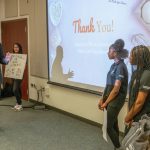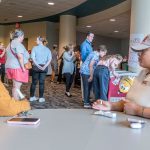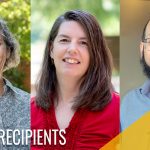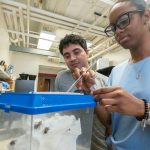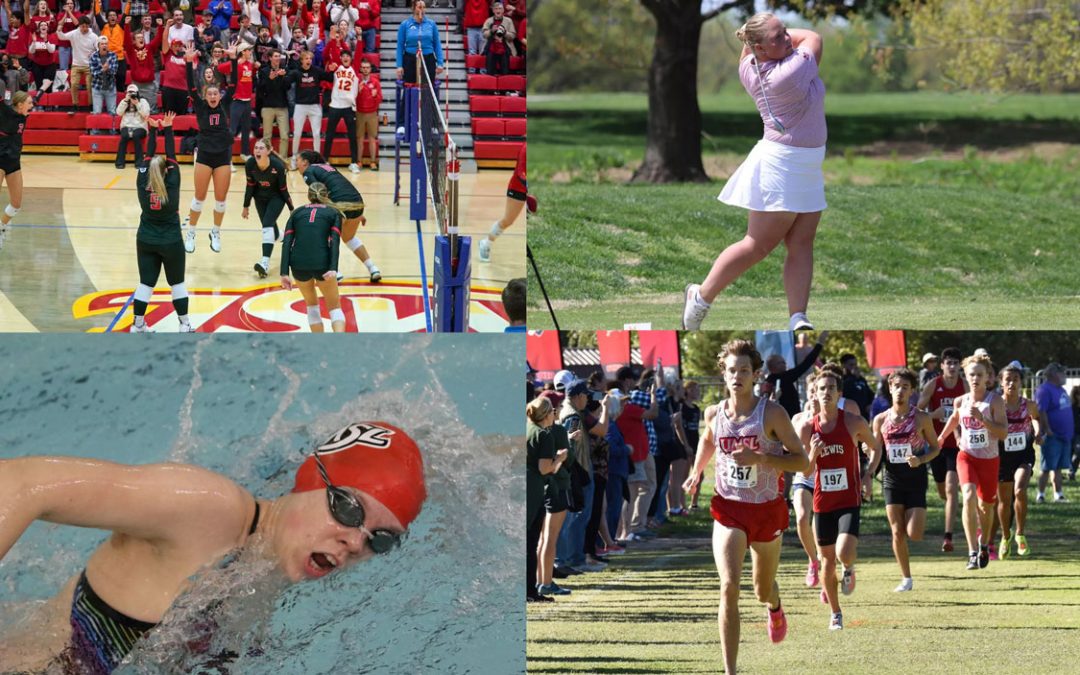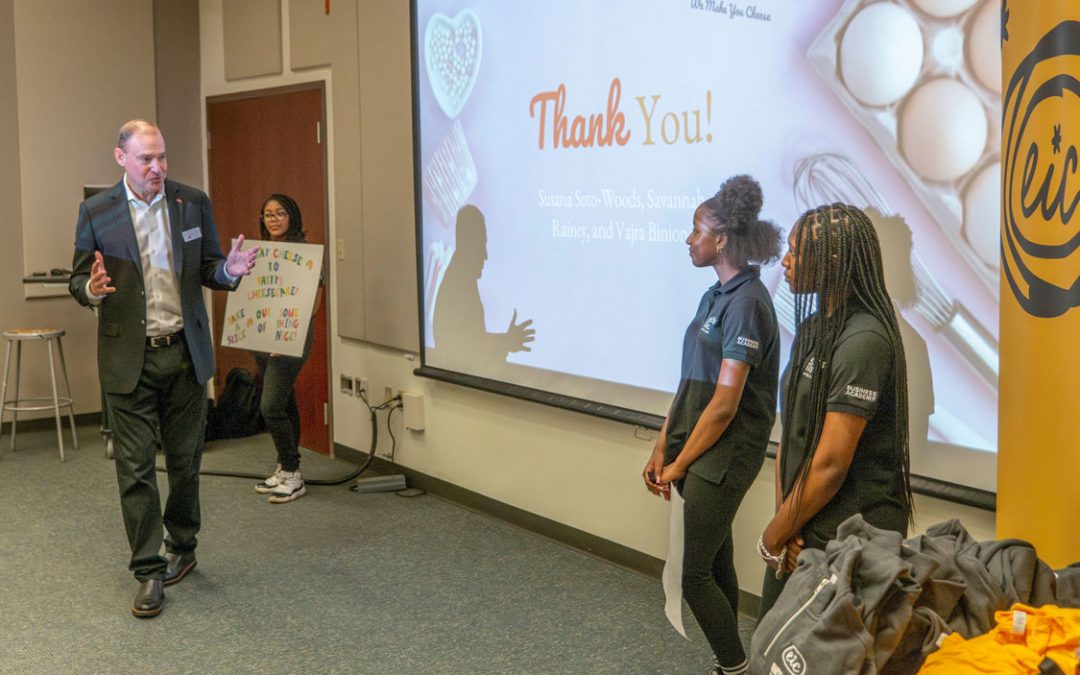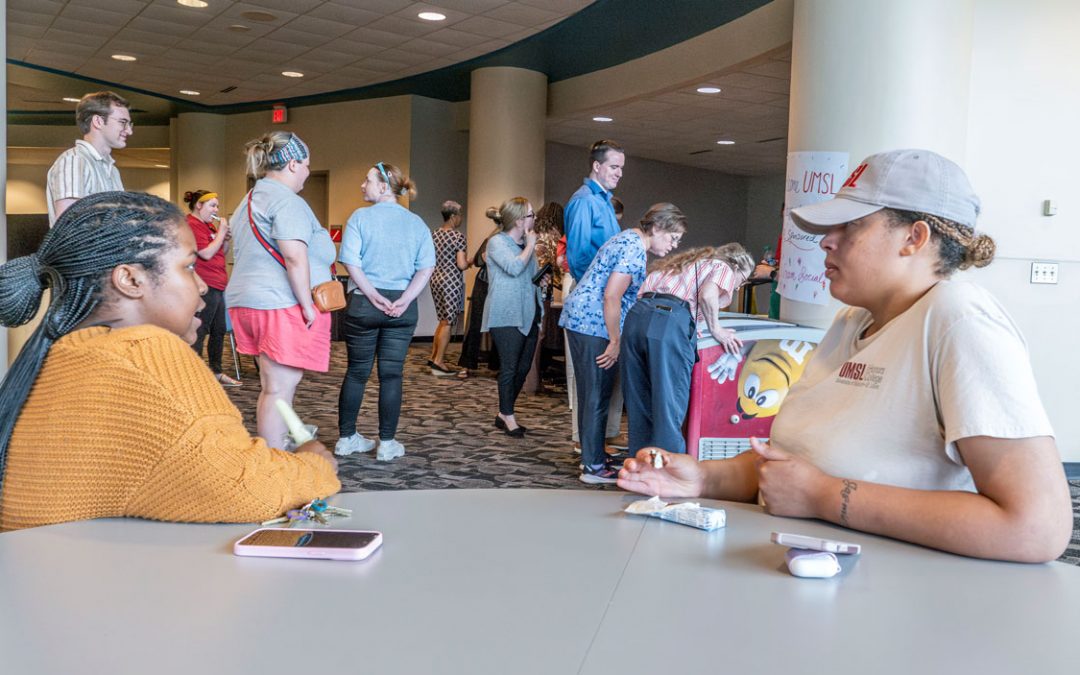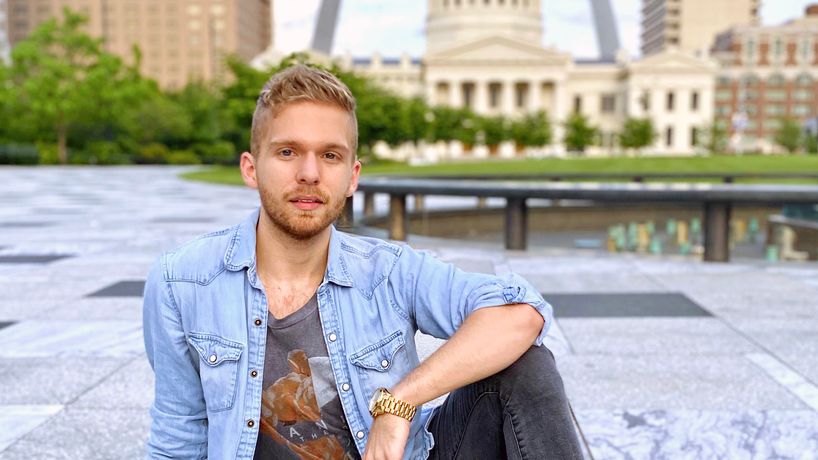
After graduating in May, Andrew Stoker joined AmeriCorps and relocated to California, where he’s helping pilot an after-school program for teens whose families live in affordable housing. (Photo submitted by Andrew Stoker)
Andrew Stoker has always wanted to make a difference. His passion involves supporting others and helping them find hope in their lives. But as he neared the completion of his bachelor’s degree in psychology at the University of Missouri–St. Louis, he wasn’t quite sure how to do that.
He considered the medical field and nearly went to Africa. Then he found out about AmeriCorps.
The network of national service programs designed to make an impact across the United States appealed to Stoker, so he signed up and headed to California following graduation in May. In his role, he’s helping establish an after-school program for families living in affordable housing.
“A lot of the kids that I work with don’t see a future,” he said. “They’ve never been given the opportunity to see a future going to college or entering the workforce or getting out of the cycle of poverty that they’ve been brought into through no fault of their own or choice of their own. I believe that in this country, everyone should have an opportunity.”
He’s a long way from where he grew up in Ste. Genevieve, Missouri, but not quite as far as he thought he’d be. Stoker accepted a position with the Peace Corps in January and had just completed the clearance process to go to Africa when the organization evacuated its volunteers due to COVID-19.
It was a bit of a setback but led to his discovery of AmeriCorps.
“I heard of AmeriCorps through people who have done the Peace Corps, and they described it as the Peace Corps for the United States,” he said. “I did some research on AmeriCorps, and I applied to five different programs. A program in southern California accepted me first, and I moved there.”
He now lives an hour east of Los Angeles and works in Coachella Valley. He’s spending a year piloting an after-school program for teenagers from moderate- to low-income families who live in affordable housing.
Thus far, the only available programs for those families have been geared toward young children, but Stoker and his colleagues are determined to change that. His specific role involves creating goals to measure the success of the program, assisting with documentation and connecting families with social services as needed.
He pointed out that his job requires a lot of flexibility.
“You wear a lot of hats and learn to say, ‘Yes,’” Stoker said. “What you’re doing may not be in your job description, so you have to be OK with it and take it as a growing opportunity.”
He’s no stranger to stepping outside of his comfort zone. He did just that when he decided to attend UMSL after spending the first semester of his freshman year at Saint Louis University. He was apprehensive about changing schools so early in his college journey but now describes it as one of the best decisions he’s made.
“It was so easy to find people from all different walks of life,” he said. “Everyone was so open, so eager to get their education. I could just talk to anyone and know that we were all there for each other. There’s a really strong sense of community that I think is so beautifully diverse.”
Stoker values flexibility, which served as a major factor in his decision to pursue a psychology degree. In addition to realizing he loved psychology while taking a class in high school, he knew that it offered a wide range of options for a career path.
While pursuing a degree, he stretched beyond his major by taking a variety of elective courses – mainly through the Pierre Laclede Honors College.
“My mission in postsecondary education was to become as well-rounded as possible, so I tried to take electives that would give me skills that were transferable,” Stoker said. “I took traditional grammar to beef up my writing skills. I took a fun elective in the Honors College – an anthropology course about cultural differences in burial practices. It sounds kind of morbid, but it was really interesting. We had to do field research, so we had an assignment to go out to the cemetery. It was nice to have the ability to choose from so many electives.”
He credited the Honors College for fostering critical thinking skills and for providing a close-knit community feel on a large campus. He enjoyed seeing the same people in multiple classes and becoming close to them.
Stoker was actively involved in student groups during his time at UMSL. He was a member of the Pierre Laclede Honors College Student Association; served on the editing committee for Bellerive, the Honors College’s literary publication; and was treasurer of The Writers Group.
He also conducted behavioral neuroscience research in UMSL labs. One of the memories that stood out from his time on campus was when he presented his work at the Undergraduate Research Symposium. In addition to sharing his discoveries, he was thrilled to learn about his fellow students’ research projects.
Even though Stoker is now an alumnus, he doesn’t plan to stay away from school for long. He’s always intended to pursue a graduate degree and is considering going into health care.
For now, though, he’s happy working with teens and is using this stage of his life to check off a couple goals: working in public service and traveling. In his spare time, he enjoys being outdoors, hiking in Yosemite National Park and supporting local musicians.
He encouraged current UMSL students to pursue their goals in spite of obstacles.
“Don’t limit yourself,” he said. “Don’t be your own worst enemy and think that you can’t do something, that you’re not smart enough, that you’re not good enough. You are enough.”




